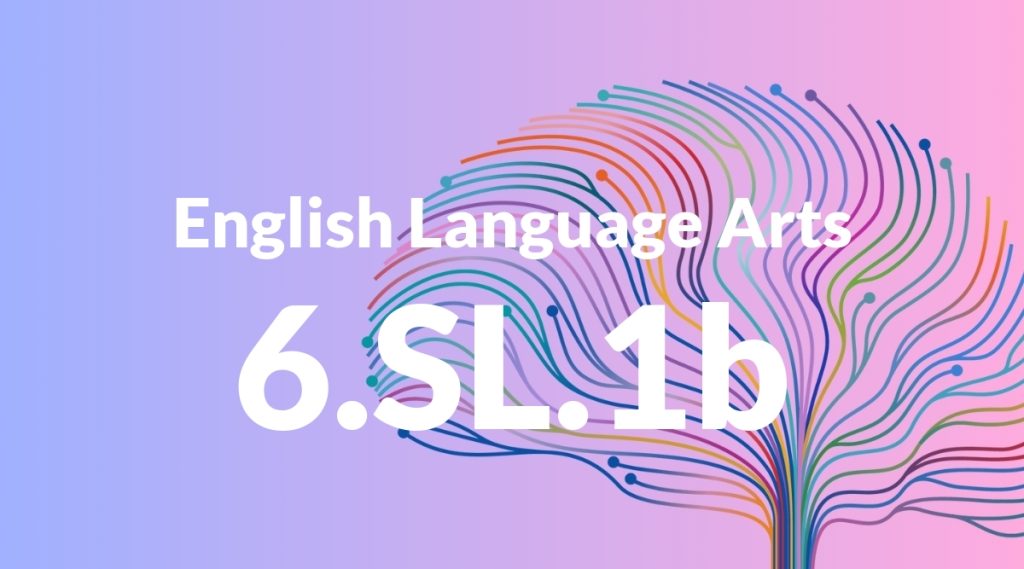Standard: 6.SL.1 – Engage effectively in a range of collaborative discussions (one-on-one, in groups, and teacher-led) with diverse partners on grade 6 topics, texts, and issues, building on others’ ideas and expressing their own clearly.
Grade level: Grade 6
Subject: English Language Arts
Domain: Speaking & Listening
Teacher Overview
This standard emphasizes the importance of engaging in collaborative discussions, which helps students develop critical thinking, listening, and speaking skills. It is crucial for their overall communication abilities and prepares them for more complex discussions in higher grades. Students should already be comfortable with basic discussion rules and have some experience in expressing their thoughts clearly.
Mastering this standard will enable students to engage in more complex and nuanced discussions, enhancing their critical thinking and communication skills for future academic and real-world interactions.
Common Misconception 1
Students may think that their opinion is the only correct one, failing to consider others’ viewpoints. This is incorrect because effective discussions require understanding and integrating diverse perspectives.
Intervention 1
Implement activities that involve active listening and peer feedback, such as structured debates or group discussions where students must summarize others’ points before sharing their own.
Common Misconception 2
Some students might believe that talking the most equates to meaningful participation. This is incorrect because meaningful contributions are about the quality and relevance of ideas, not the quantity of words spoken.
Intervention 2
Use structured turn-taking exercises and role-playing to show that listening and thoughtful contributions are more valuable than simply talking a lot.
Prerequisite Knowledge
Students should have basic skills in listening and responding to others, understanding and following classroom discussion rules, and expressing their thoughts clearly in both written and spoken forms.
Subsequent Knowledge
Students will develop advanced skills in critical thinking, persuasive speaking, and the ability to synthesize multiple viewpoints into a coherent argument.
Instructional Activities
- Organize classroom debates on current events.
- Facilitate group projects where students analyze literature together.
- Conduct peer review sessions for writing assignments.
- Create book club discussions focused on specific themes.
- Use role-playing activities to explore different perspectives on an issue.




